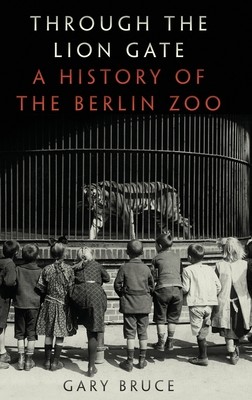
- We will send in 10–14 business days.
- Author: Gary Bruce
- Publisher: Oxford University Press, USA
- ISBN-10: 0190234989
- ISBN-13: 9780190234980
- Format: 16.3 x 23.6 x 2.5 cm, hardcover
- Language: English
- SAVE -10% with code: EXTRA
Reviews
Description
In 1943, fierce aerial bombardment razed the Berlin zoo and killed most of its animals. But only two months after the war's end, Berliners had already resurrected it, reopening its gates and creating a symbol of endurance in the heart of a shattered city. As this episode shows, the Berlin zoo offers one of the most unusual--yet utterly compelling--lenses through which to view German history. This enormously popular attraction closely mirrored each of the political systems under which it existed: the authoritarian monarchy of the kaiser, the Weimar Republic, Nazi Germany, and the post-1945 democratic and communist states.
Gary Bruce provides the first English-language history of the Berlin zoo, from its founding in 1844 until the 1990 unification of the West Berlin and East Berlin zoos. At the center of the capital's social life, the Berlin zoo helped to shape German views not only of the animal world but also of the human world for more than 150 years. Given its enormous reach, the German government used the zoo to spread its political message, from the ethnographic display of Africans, Inuit, and other "exotic" peoples in the late nineteenth century to the Nazis' bizarre attempts to breed back long-extinct European cattle. By exploring the intersection of zoology, politics, and leisure, Bruce shows why the Berlin zoo was the most beloved institution in Germany for so long: it allowed people to dream of another place, far away from an often grim reality. It is not purely coincidence that the profound connection of Berliners to their zoo intensified through the bloody twentieth century. Its exotic, iconic animals--including Rostom the elephant, Knautschke the hippo, and Evi the sun bear--seemed to satisfy, even partially, a longing for a better, more tranquil world.EXTRA 10 % discount with code: EXTRA
The promotion ends in 16d.17:18:53
The discount code is valid when purchasing from 10 €. Discounts do not stack.
- Author: Gary Bruce
- Publisher: Oxford University Press, USA
- ISBN-10: 0190234989
- ISBN-13: 9780190234980
- Format: 16.3 x 23.6 x 2.5 cm, hardcover
- Language: English English
In 1943, fierce aerial bombardment razed the Berlin zoo and killed most of its animals. But only two months after the war's end, Berliners had already resurrected it, reopening its gates and creating a symbol of endurance in the heart of a shattered city. As this episode shows, the Berlin zoo offers one of the most unusual--yet utterly compelling--lenses through which to view German history. This enormously popular attraction closely mirrored each of the political systems under which it existed: the authoritarian monarchy of the kaiser, the Weimar Republic, Nazi Germany, and the post-1945 democratic and communist states.
Gary Bruce provides the first English-language history of the Berlin zoo, from its founding in 1844 until the 1990 unification of the West Berlin and East Berlin zoos. At the center of the capital's social life, the Berlin zoo helped to shape German views not only of the animal world but also of the human world for more than 150 years. Given its enormous reach, the German government used the zoo to spread its political message, from the ethnographic display of Africans, Inuit, and other "exotic" peoples in the late nineteenth century to the Nazis' bizarre attempts to breed back long-extinct European cattle. By exploring the intersection of zoology, politics, and leisure, Bruce shows why the Berlin zoo was the most beloved institution in Germany for so long: it allowed people to dream of another place, far away from an often grim reality. It is not purely coincidence that the profound connection of Berliners to their zoo intensified through the bloody twentieth century. Its exotic, iconic animals--including Rostom the elephant, Knautschke the hippo, and Evi the sun bear--seemed to satisfy, even partially, a longing for a better, more tranquil world.

Reviews